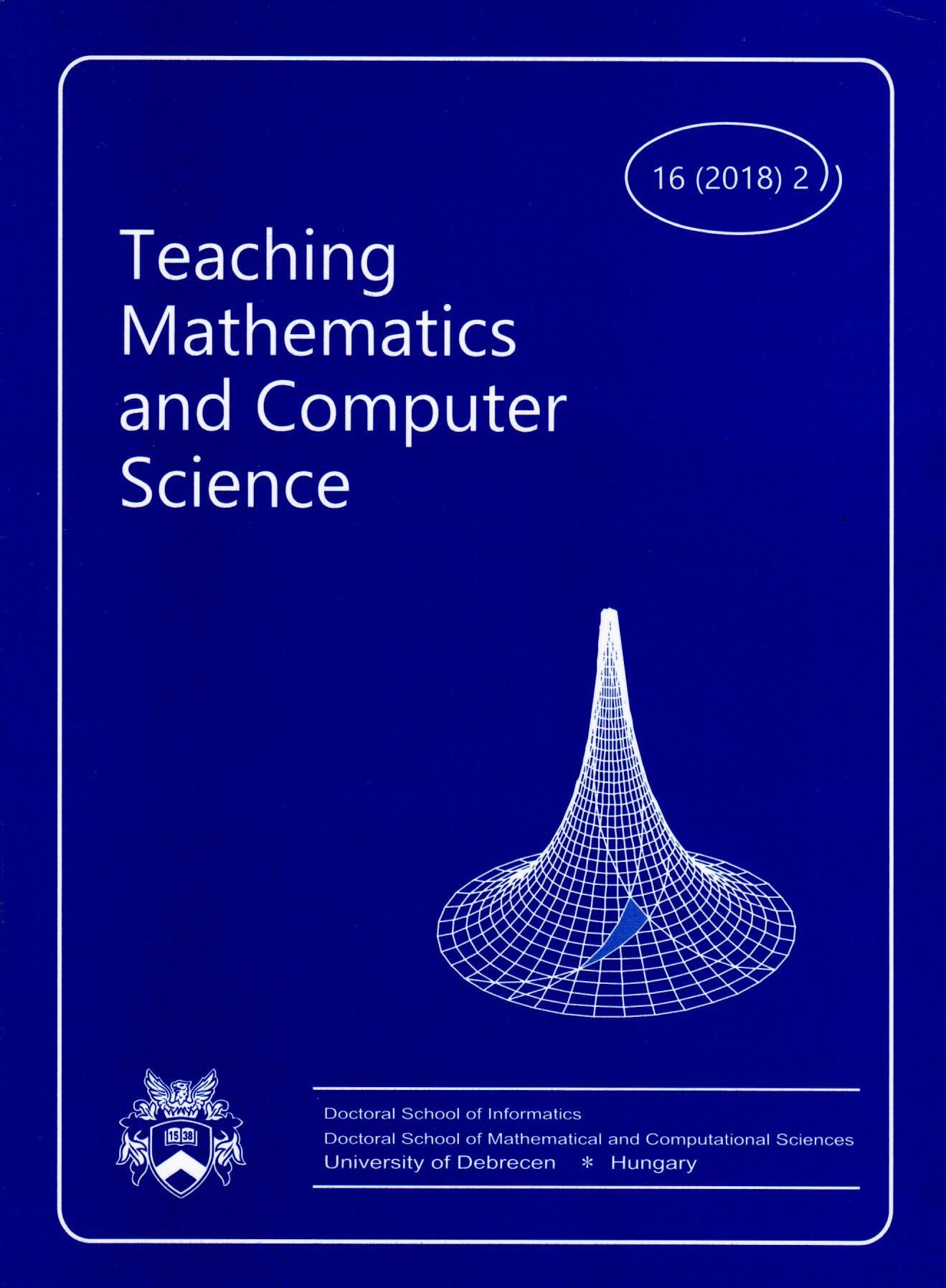Articles
Mathematics teachers' reasons to use (or not) intentional errors
Published:
2018-12-01
Authors
View
Keywords
License
Copyright (c) 2018 Riikka Palkki and Peter Hästö

This work is licensed under a Creative Commons Attribution 4.0 International License.
How To Cite
Selected Style:
APA
Palkki, R., & Hästö, P. (2018). Mathematics teachers’ reasons to use (or not) intentional errors. Teaching Mathematics and Computer Science, 16(2), 263-282. https://doi.org/10.5485/TMCS.2018.0453
Abstract
Mathematics teachers can make use of both spontaneously arising and intentionally planted errors. Open questions about both types of errors were answered by 23 Finnish middle-school teachers. Their reasons to use or not to use errors were analyzed qualitatively. Seven categories were found: Activation and discussion, Analyzing skills, Correcting misconceptions, Learning to live with errors, (Mis)remembering errors, (Mis)understanding error and Time. Compared to earlier results, the teachers placed substantially less emphasis on affective issues, whereas the answers yielded new distinctions in cognitive dimensions. In particular, teachers' inclination to see errors as distractions could be divided into two aspects: students misunderstanding an error in the first place or student forgetting that an error was erroneous. Furthermore, the content analysis revealed generally positive beliefs towards using errors but some reservations about using intentional errors. Teachers viewed intentional errors mainly positively as possibilities for discussion, analysis and learning to live with mistakes.

 https://doi.org/10.5485/TMCS.2018.0453
https://doi.org/10.5485/TMCS.2018.0453






